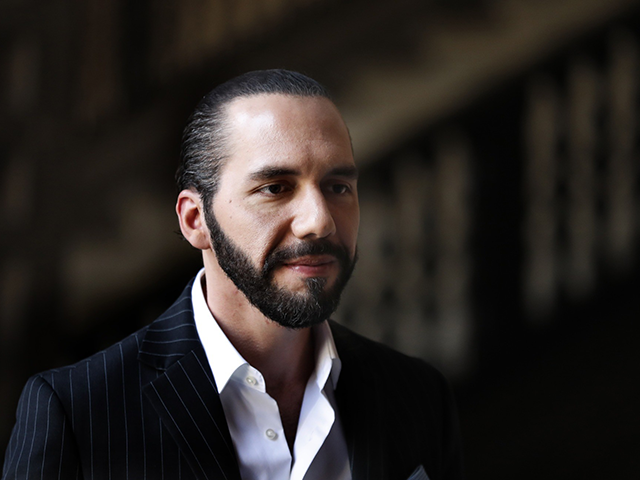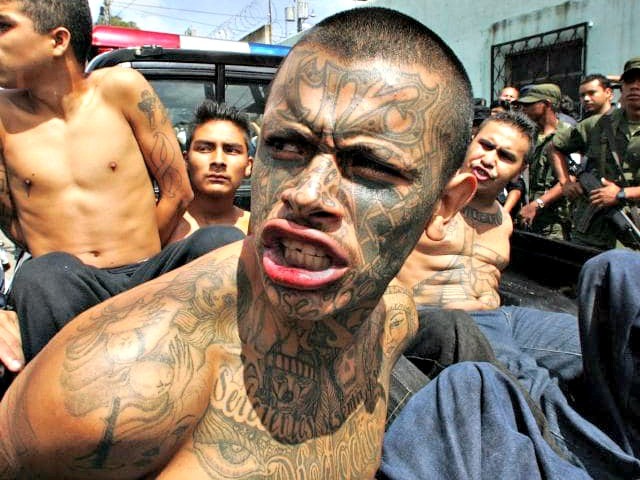The president of El Salvador, Nayib Bukele, categorically condemned the ongoing terrorist rampage by the Hamas jihadist group in Israel, writing on social media on Sunday that, as someone of Palestinian heritage, he hoped to see the region “get rid of those animals and let the good people thrive.”
Bukele compared Hamas to the various violent gangs that controlled his country for many years – most prominently, the Mara Salvatrucha, or MS-13 – and described the Palestinian terrorists as “savage beasts” who are not representative of the Palestinian people. Just as his administration has, most experts agreed, eradicated the dominant presence of gangs in his country, Bukele urged the eradication of jihadist terrorists from Israel.
“As a Salvadoran with Palestinian ancestry, I’m sure the best thing that could happen to the Palestinian people is for Hamas to completely disappear. Those savage beasts do not represent the Palestinians,” Bukele wrote in a post published to Twitter on Sunday night. “Anyone who supports the Palestinian cause would make a great mistake siding with those criminals.”
“It would be like if Salvadorans would have sided with MS13 terrorists, just because we share ancestors or nationality,” he continued. “The best thing that happened to us as a nation was to get rid of those rapists and murderers, and let the good people thrive.”
“Palestinians should do the same: get rid of those animals and let the good people thrive,” he advised. “That’s the only way forward.”
As a Salvadoran with Palestinian ancestry, I'm sure the best thing that could happen to the Palestinian people is for Hamas to completely disappear.
Those savage beasts do not represent the Palestinians.
Anyone who supports the Palestinian cause would make a great mistake…
— Nayib Bukele (@nayibbukele) October 9, 2023
Bukele wrote his message in response to a wave of barbarism that erupted on Saturday morning in Israel, when Hamas began launching a rocket barrage of thousands of missiles into the country and stormed residential communities by foot. Hamas terrorists stormed civilian homes, killing, torturing, and abducting entire families. Some families reported finding out about the deaths of their loved ones as terrorists stole their phones and uploaded images of their corpses to Facebook. At a music festival, jihadists opened fire on concertgoers and desecrated captured corpses on video.
At press time, the Israeli government has confirmed the deaths of more than 700 people and thousands injured in the assault. Israel officially declared itself in a state of war on Sunday – the first time in over half a century – and announced a complete siege of Gaza in response to the attack.
Bukele’s response to the attack on Israel, as a member of the Palestinian diaspora, was markedly different from much of that in the Muslim world and among pro-Palestinian groups. In much of the Middle East, Muslims celebrated the mass killings. In the West, pro-Palestinian leftist groups convened rallies in solidarity with Hamas. In Iran – a nation whose regime reportedly helped plan and approve the attack – Tehran organized a massive block party and set off fireworks in response to the carnage.
Nayib Bukele is El Salvador’s second Palestinian president, after former leader Tony Sacca, and a member of a prominent family in the Salvadoran Palestinian community. His father, Armando Bukele Kattan, was a prominent imam and built El Salvador’s first mosque. Bukele’s grandparents were Christians from Bethlehem and Jerusalem, Israel, and Bukele himself identifies as Christian; his wife has Jewish heritage.
Bukele has prominently supported Israel throughout his brief political career, which began with a mayoral run in the capital, San Salvador, and catapulted him to a surprise victory in the 2019 presidential election. A year before becoming president, Bukele visited Israel, meeting with Israeli leaders and praying at the Western Wall:
El Salvador's President-Elect @nayibbukele at the Western Wall in #Jerusalem, during our International Mayors Conference last February. This is what leadership looks like. pic.twitter.com/TDlj2JNlFf
— Jack Rosen (@JackRosenNYC) February 5, 2019
Bukele has worked to strengthen ties with Israel, particularly Israeli businesses, in both humanitarian and law enforcement fields. El Faro, a newspaper often critical of Bukele’s administration, reported in January that the president had signed a deal with a “transnational intermediary to Israeli spyware manufacturers” to obtain three new surveillance technology tools, presumably to use in Bukele’s war on gangs.
Bukele has made eradicating MS-13 and similar groups from El Salvador – allowing peace, civilian life, and tourism to thrive – the cornerstone of his administration. In March 2022, Bukele declared an ongoing “state of exception” that dramatically expands police power and limits the civil rights of freedom of association and due process, allowing for mass arrests of suspected gang members and their processing far more rapidly. The result, El Faro revealed in an investigation published in February, has been the disappearance of the gang structure that plagued the daily lives of citizens pervasively.
“Yes, they have ruined the gangs as you knew them. If what you mean to ask is whether there are no longer any cipotes [gang members] with presence in these places, it’s true,” an anonymous former gang leader told the newspaper. “They’re no longer there. If you want to see it that way, then yes: they have ruined the gangs.”
The result has been that gang members no longer enjoy free association and civilians can take their children to play at public parks, where they would have previously been extorted to be present or had gang members forcibly recruit their children; small businesses no longer have to pay extortion fees to gangs to exist in many areas; and the fear of being caught in a shootout despite having no ties to a gang has subsided.
Bukele is running for reelection in the 2024 presidential election, despite it being unconstitutional for him to do so. Recent polls show his support is more than 60 percentage points above his closest rivals.


COMMENTS
Please let us know if you're having issues with commenting.